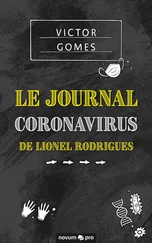Rodrigues Ottolengui - A Modern Wizard
Здесь есть возможность читать онлайн «Rodrigues Ottolengui - A Modern Wizard» — ознакомительный отрывок электронной книги совершенно бесплатно, а после прочтения отрывка купить полную версию. В некоторых случаях можно слушать аудио, скачать через торрент в формате fb2 и присутствует краткое содержание. Жанр: Классический детектив, foreign_detective, foreign_prose, на английском языке. Описание произведения, (предисловие) а так же отзывы посетителей доступны на портале библиотеки ЛибКат.
- Название:A Modern Wizard
- Автор:
- Жанр:
- Год:неизвестен
- ISBN:нет данных
- Рейтинг книги:3 / 5. Голосов: 1
-
Избранное:Добавить в избранное
- Отзывы:
-
Ваша оценка:
- 60
- 1
- 2
- 3
- 4
- 5
A Modern Wizard: краткое содержание, описание и аннотация
Предлагаем к чтению аннотацию, описание, краткое содержание или предисловие (зависит от того, что написал сам автор книги «A Modern Wizard»). Если вы не нашли необходимую информацию о книге — напишите в комментариях, мы постараемся отыскать её.
A Modern Wizard — читать онлайн ознакомительный отрывок
Ниже представлен текст книги, разбитый по страницам. Система сохранения места последней прочитанной страницы, позволяет с удобством читать онлайн бесплатно книгу «A Modern Wizard», без необходимости каждый раз заново искать на чём Вы остановились. Поставьте закладку, и сможете в любой момент перейти на страницу, на которой закончили чтение.
Интервал:
Закладка:
"Professor, as an expert toxicologist now, leaving analytical chemistry for awhile, you are familiar with the action of drugs in the human body during life, are you not?"
"Of poisonous drugs. Yes, sir."
"Of poisonous drugs of course. Of opium and its alkaloids especially, is what I mean?"
"Yes, sir. I have studied them minutely."
"Now then in regard to morphine. You said to his Honor, awhile ago, that this drug acts variably upon different individuals. Is it not true that it also acts differently upon the same individual at various times?"
"Yes, sir, that is true."
"And is its action affected by disease?"
"It might be!"
"Supposing that the drug were administered continuously, might it not occur, that instead of being absorbed, the morphine would be retained, stored up as it were, so that the quantity would accumulate?"
"Yes, the records contain reports of such cases."
"Well, now, suppose that a patient had some kidney trouble, such as
Bright's disease, would not morphine be retained in this way?"
"I have never seen such a case."
"Never seen it! But you have read, or heard of such cases?"
"Yes, sir. That is the claim made by some authorities."
"By good authorities?"
"Yes. Good authorities."
"And these good authorities claim that morphine, administered to one who has Bright's disease, might accumulate until a poisonous dose were present?"
"Yes, sir!"
Thus was made plain the object of the line of cross-examination that had been followed with Dr. McDougal. It became evident that the defence meant to claim that if Mabel Sloane died from morphine it was because it had been stored up in her system, in consequence of the diseased kidneys. Satisfied with this admission from the prosecution's expert, Mr. Bliss yielded the witness, and he was re-examined by Mr. Munson.
"Professor," said he, "supposing that in the case of this girl, morphine had been retained in the system, suddenly destroying life because a poisonous quantity had been thus accumulated, would you expect to find it, after death, in the stomach?"
"No, sir, I would not."
"How long a time would be required to eliminate it from that organ?"
"Ordinarily it should be eliminated from the system entirely within forty-eight hours. Certainly after that length of time, it should not appear in the stomach."
"And yet in this case you found morphine in the stomach?"
"Yes, sir."
"So that to be there, it must have been administered within two days, and could not have been there as a result of accumulation beyond that time?"
"I should say that the presence in the stomach proves that the administration must have occurred within two days."
Upon re-cross Mr. Bliss asked a few questions.
"On your original examination, Professor, you said that you found morphine in the intestines and in the stomach. Where did you find the greater quantity?"
"In the intestines!"
"If, because of kidney disease, morphine were retained in the system, where would you look for it after death?"
"In the intestines."
"That is all."
The next witness was a young woman. Her examination proceeded as follows, after she had given her name and occupation.
"Now, Miss Conlin, you say you were engaged in your capacity of professional nurse, to care for Miss Sloane. Were you on duty on the day of her death?"
"Yes, sir. Day and night."
"You were present when the doctors called in the afternoon then. What did they say of her condition?"
"That she was very much better. The membrane had entirely disappeared.
Dr. Fisher thought she would be up in a few days."
"Did Dr. Medjora call during the afternoon, or evening?"
"Yes, sir. He called about five o'clock."
"Did you remain with your patient throughout his visit?"
"No, sir. Dr. Medjora said that he would stay until nine o'clock, and that I might go out for some fresh air."
"Did you do so?"
"Yes, sir. I was glad to go."
"Did you not consider it wrong to leave your patient?"
"Why, no, sir. She was getting better, and besides, Dr. Medjora being a physician could care for her as well as I could."
"When you went out did you state when you would return?"
"Yes. I said I would be back at nine o'clock."
"As a matter of fact, when did you return?"
"About half-past eight. It was eight o'clock when I left my home."
"Did you go at once to your patient's room?"
"Yes, sir."
"And enter it?"
"Yes, sir."
"What did you see when you entered?"
"I saw Dr. Medjora bending over Miss Sloane, giving her a hypodermic injection of morphine!"
"How could you tell it was morphine?"
"He washed out the syringe in a glass of water, before he put it back in his case. I tasted the water afterwards, and distinguished the morphine in that way. Besides, I found several morphine tablets in the bed."
"What did you do with these tablets?"
"At first I placed them on the mantel. Afterwards, when Dr. Meredith said that Miss Sloane was dying from morphine, I put them in a phial and slipped that into my pocket."
"Was that the same phial which you brought to me?"
"Yes, sir."
"Is this it?" He handed up a phial containing four pellets, which was admitted in evidence, and identified by Miss Conlin.
"Did you tell Dr. Medjora that you had seen him administer the morphine?"
"No, sir. At the time I thought it must be all right, as he was her friend, and a physician."
"Did he know that you had seen him?"
"No, sir. I think not."
The witness was then given to Mr. Bliss for cross-examination.
"Miss Conlin," he began, "who engaged you to attend Miss Sloane?"
"Dr. Medjora."
"What did he say to you at that time?"
"That a very dear friend of his was ill, and that he would pay me well for skilful services."
"Did he pay you?"
"Yes, sir."
"During her illness what was the general behavior of Dr. Medjora towards her. That is, was he kind, or was he indifferent?"
"Oh! very kind. It was plain that he was in love with her."
"I move, your Honor," said Mr. Munson, "that the latter part of that answer be stricken out, as incompetent."
"The motion is granted," said the Recorder.
"You said that the Doctor was always kind," said Mr. Bliss, resuming. "So much so that you would not have suspected that he wished her any harm, would you?"
"I object!" said Mr. Munson.
"Objection sustained!" said the Recorder.
"Now, then, we will come down to the administration of the hypodermic," said Mr. Bliss. "You testified that you saw Dr. Medjora administer the hypodermic. Are we to understand that you saw Dr. Medjora dissolve the tablets, fill the syringe, push the needle under the skin, press the piston so that the contents were discharged, and then remove the instrument?"
"No, sir. I did not see all that."
"Well, what did you see?"
"I saw him taking the syringe out of Miss Sloane's arm. Then he cleaned it and put it in his pocket, after putting it in a case."
"Oh! You did not see him push the syringe in, you only saw him take it out. Then how do you know that he did make the injection, if one was made at all?"
"Why, he must have. I saw him take out the syringe, and there was no one else who could have done it."
"Then you saw him put the syringe in a case, and place the case in his pocket, I think you said?"
"Yes, sir."
"What sort of case was it?"
"A metal case!"
"Was it a case like this?" Mr. Bliss handed her an aluminum hypodermic case, which she examined, and then said:
"It looked like this." The case was then marked as an exhibit for the defence.
"In what position was Miss Sloane when you saw the Doctor leaning over her?"
"She was lying across the bed, with her head in a pillow. She was crying softly!"
Читать дальшеИнтервал:
Закладка:
Похожие книги на «A Modern Wizard»
Представляем Вашему вниманию похожие книги на «A Modern Wizard» списком для выбора. Мы отобрали схожую по названию и смыслу литературу в надежде предоставить читателям больше вариантов отыскать новые, интересные, ещё непрочитанные произведения.
Обсуждение, отзывы о книге «A Modern Wizard» и просто собственные мнения читателей. Оставьте ваши комментарии, напишите, что Вы думаете о произведении, его смысле или главных героях. Укажите что конкретно понравилось, а что нет, и почему Вы так считаете.












